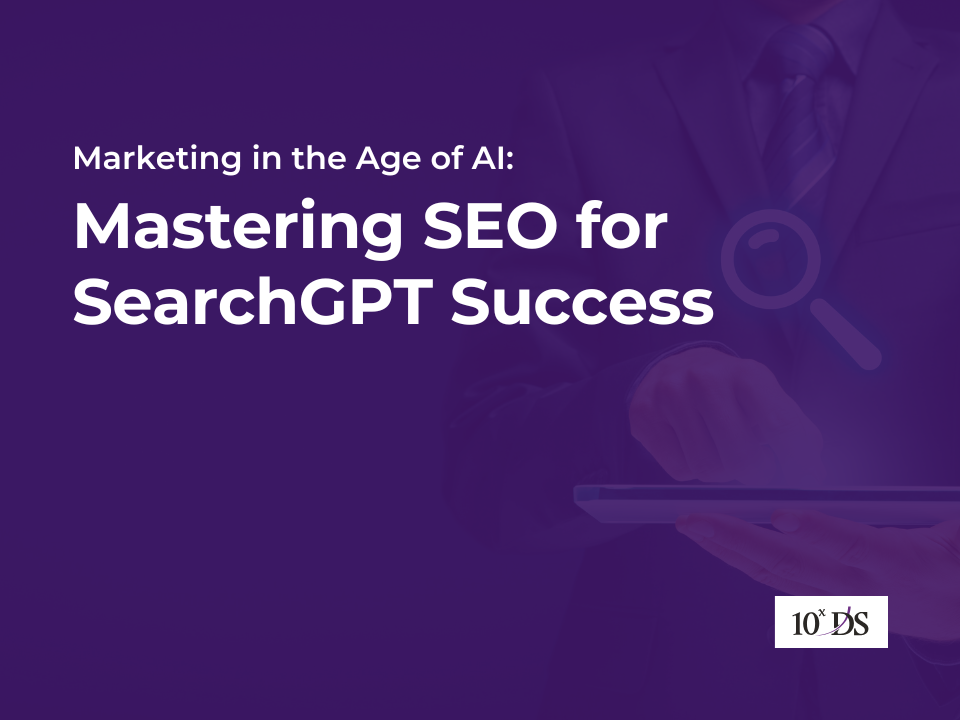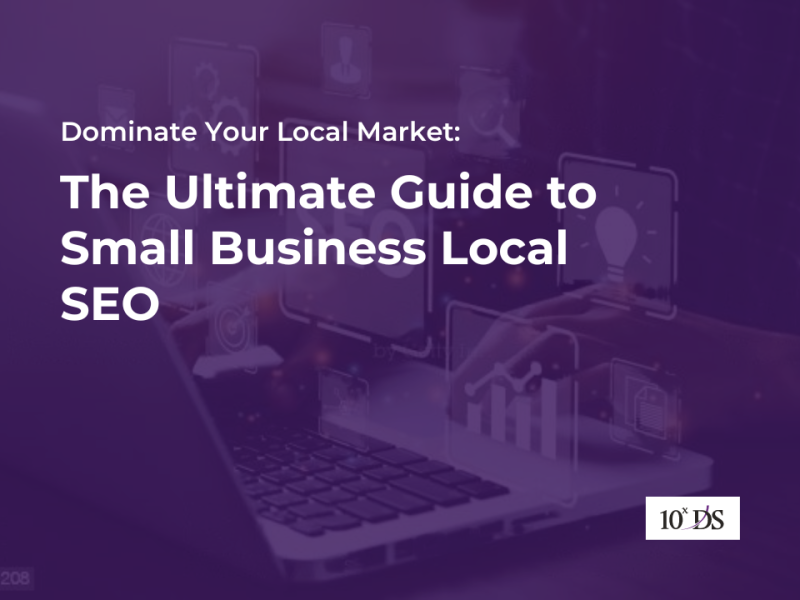
Marketing in the Age of AI: Mastering SEO for SearchGPT Success
The advent of AI-driven search platforms like SearchGPT is reshaping Search Engine Optimization (SEO) strategies. Unlike traditional search engines that list links based on keyword relevance, SearchGPT SEO delivers direct, conversational responses by synthesizing information from various sources. This shift necessitates a re-evaluation of SEO practices to ensure content remains visible and engaging.
Key Changes in SEO with SearchGPT
High-Quality, Contextual Content: AI-powered search platforms prioritize content that comprehensively addresses user queries. Creating in-depth, well-structured content that aligns with user intent becomes crucial. This approach enhances the likelihood of content being featured in AI-generated responses, making SearchGPT SEO strategies more critical for maintaining visibility.
Natural Language Optimization: SearchGPT SEO interprets natural language queries, making it essential to optimize content for conversational search terms. Incorporating question-based headings and answers can improve content relevance and ensure it resonates with AI-powered platforms.
Structured Data Implementation: Utilizing schema markup helps AI understand and accurately present content. Structured data provides context, aiding in the correct interpretation of information, which is a core component of SearchGPT SEO strategies.
Authoritative Backlinks: Earning backlinks from reputable sources signals credibility. AI platforms consider authoritative links when generating responses, directly impacting SearchGPT SEO visibility and rankings.
User Engagement Metrics: AI systems may assess user engagement indicators like time spent on page and bounce rates. Enhancing user experience through interactive and valuable content can positively influence these metrics, further solidifying your SearchGPT SEO approach.
Adaptation to AI Integration: Staying informed about AI advancements and integrating AI tools for content creation and analysis can provide a competitive edge. Leveraging AI for keyword research and trend analysis helps in aligning with evolving search algorithms and reinforces SearchGPT SEO strategies.
In summary, the rise of AI-powered search engines like SearchGPT requires a strategic shift in SEO practices. Let us examine now the pivotal strategies to maintain and improve content visibility in this new search paradigm.
Deep Contextual Relevance
Deep contextual relevance goes beyond using primary keywords; it involves creating content that fully addresses all aspects of a topic, making it comprehensive and authoritative. By incorporating semantic keywords—terms and phrases that are contextually related to the main topic—you help AI systems like SearchGPT understand the depth and breadth of your content. This is critical because AI-driven platforms prioritize information that holistically satisfies user intent, whether the query is broad or highly specific. To achieve this, businesses must perform thorough keyword research, map out user intent for various queries, and organize content in a logical structure that mirrors the way users think about a subject. By doing so, your content becomes a preferred resource for AI platforms, boosting its chances of being highlighted in conversational responses through SearchGPT SEO.
High-Quality Content Creation
Producing high-quality content involves more than just good writing—it’s about delivering real value to your audience. Engaging, well-researched, and accurate content captures users’ attention, addresses their needs, and encourages return visits. AI-driven search systems, like SearchGPT, prioritize such content because it aligns with their goal of providing useful and satisfying answers. Regular updates ensure that your material remains current, addressing evolving trends and new user queries. Freshness signals relevancy to AI algorithms, improving visibility in search results. Additionally, high-quality content invites backlinks from authoritative sources, further enhancing its SEO value. Employing multimedia elements such as images, videos, and infographics can also enrich the user experience, making the content more engaging and likely to be featured prominently within SearchGPT SEO rankings.
Structured Data and Schema Markup
Structured data and schema markup play a pivotal role in optimizing content for AI-driven search platforms. These technical tools help define the data on your website in a way that AI systems can easily understand, ensuring accurate interpretation and categorization. For example, adding structured data for articles, FAQs, events, or reviews allows platforms like SearchGPT to extract specific information and present it directly in responses. This enhances the visibility of your content, making it more likely to appear as a featured snippet or a top search result. Implementing schema markup not only aids AI in matching user intent with your content but also improves click-through rates by providing rich search result features such as ratings, prices, and availability. Investing in this technical SEO aspect is essential for maintaining relevance in an increasingly AI-dominated search landscape through SearchGPT SEO practices.
User Experience Optimization
User experience (UX) optimization has become a cornerstone of effective SEO, particularly in the age of AI-powered search platforms like SearchGPT. AI algorithms now assess factors such as page load speed, mobile responsiveness, and intuitive navigation to determine the overall quality of a website. These elements influence how long users stay on your site, how they interact with content, and whether they find value in what you offer—all metrics that contribute to search rankings. A fast, user-friendly website enhances engagement and reduces bounce rates, signaling to AI that your content is relevant and valuable. Features like clear CTAs, accessible design, and interactive elements further improve the experience, making your site a preferred destination for both users and search platforms. These improvements are vital components of a successful SearchGPT SEO strategy.
Staying Updated with Trends
The fast-paced evolution of AI technologies and SEO practices necessitates constant vigilance and adaptability. Staying updated on trends allows businesses to anticipate and respond to changes in user behavior, search algorithms, and industry standards. Following authoritative SEO blogs, participating in industry forums, and leveraging AI tools for trend analysis are effective ways to stay informed. For instance, as SearchGPT and similar platforms increasingly rely on conversational AI, understanding emerging natural language processing (NLP) techniques and their implications for content creation becomes critical. Keeping an eye on competitors and experimenting with innovative strategies can also help maintain a competitive edge. Adapting swiftly to these shifts ensures your SEO strategies remain effective and relevant, securing a consistent presence in AI-driven search results with SearchGPT SEO at the forefront.
The Future of SearchGPT SEO
The future of SearchGPT SEO lies in adapting to AI-driven search platforms that prioritize conversational and voice search optimization, personalized user experiences, and content relevance. Businesses must focus on producing high-quality, context-rich content optimized for natural language and long-tail keywords while leveraging structured data like schema markup to enhance AI comprehension. Generative Engine Optimization (GEO) is emerging as a critical area, requiring tailored strategies to align with AI’s ability to synthesize and personalize search results. Staying updated with evolving search algorithms, integrating machine learning insights, and improving user engagement metrics such as time on page and bounce rates are essential. These shifts demand a dynamic, forward-looking SEO approach to maintain visibility and competitive advantage in an AI-driven digital landscape.
In conclusion, mastering SearchGPT SEO is no longer optional—it’s an imperative for businesses aiming to succeed in the era of AI-powered search platforms. Talk to our experts to learn more.


